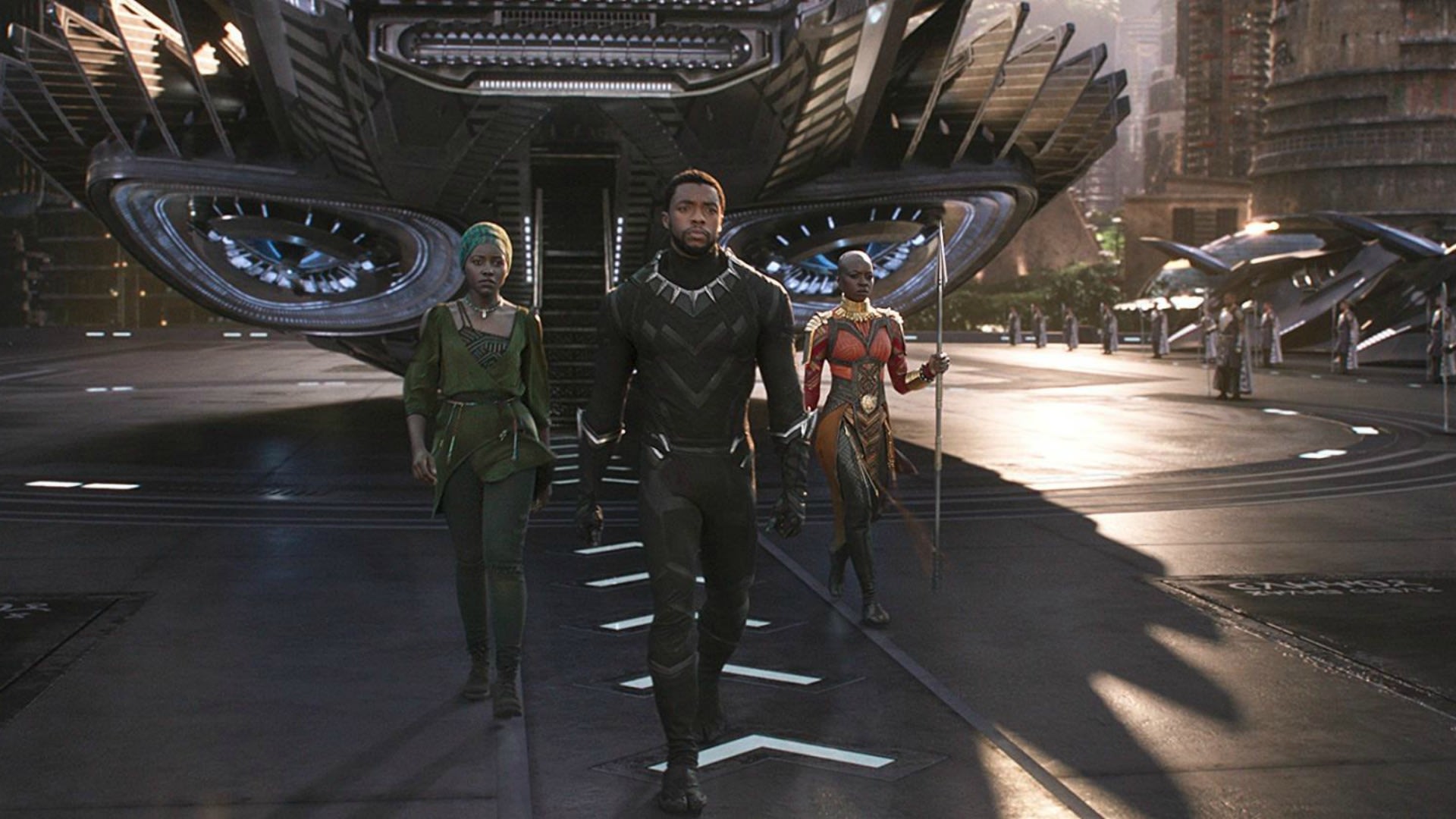It’s safe to say that Disney-Marvel’s Black Panther lived up to the buzz. On track to bring in $218 million its debut weekend, the superhero movie sharpened its claws on the box office and shredded the previous records for February releases. Even more impressive? The global estimate, according to MarketWatch, will total $387 million.
Not only does that make the film the biggest February debut ever — beating out 2016’s Deadpool — it also makes it the highest-grossing film in history by a black director, Ryan Coogler, and featuring a predominantly black cast.
The film follows superhero T’Challa (Chadwick Boseman) as he returns to assume the rightful throne in his remote African kingdom, Wakanda. Rounding out the powerhouse cast are major Hollywood players including Michael B. Jordan, Lupita Nyong’o, Danai Gurira, Letitia Wright, Angela Bassett, Forest Whitaker, Daniel Kaluuya and Sterling K. Brown.
The cultural significance of the film’s success is not lost on Coogler, whose obsession with the character stretches back to childhood. “I went to the comic book shop that was by my school and asked if they had any black characters,” Coogler recounted to The Washington Post, adding that his first introduction to Black Panther came moments later.
“Our neighborhoods, our families were run by women who look like Lupita and Danai,” Coogler told The Post. “That’s how my mom looks. I saw my mom be a warrior, a leader, a loving wife and a magic mom every day… I wasn’t seeing that in pop culture.”
Now, in directing a film about his favorite superhero that is shattering box office records, Coogler is also shattering the myth that movies rooted in black culture and starring black casts cannot be box office successes.
Comscore’s social media analyst, Paul Dergarabedian, suggests that Black Panther could herald a huge (and extremely salient) shift not only in movie theaters but also across the sociopolitical spectrum.
“This is proof that the big screen experience may arguably be the most powerful platform of change in our society,” Dergarabedian said. “The emotional, communal, immersive and bigger-than-life theatrical experience has an impact that virtually no other medium can match.”












